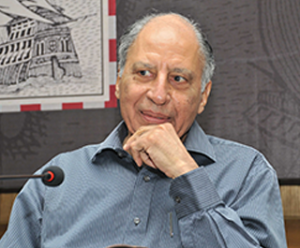Keki Daruwalla is a major Indian poet and writer in English. He has written over 12 books. He was awarded the Sahitya Akademi Award, in 1984 for his poetry collection, The Keeper of the Dead, by the Sahitya Akademi, India’s National Academy of Letters. He was awarded Padma Shri, the fourth highest civilian award in India, in 2014. He was also the Head of Jury for DSC PRIZE for South Asian Literature 2015. Currently, he is the Advisor to the First International Young Author Awards, UAE.
Welcome Keki Ji., I would like to ask you the following questions:
Ranikhet was a lovely time. My first daughter was born, I bought a car, and we lived through two winters there. But my favourite stories would be the title one, Trojan Horse (because it is an elongated metaphor), Winter Solstice.
Not really. At the moment though, the novel I am writing, presents me with a block. I don’t know how to proceed. But will get over it!I have almost never forced myself to write a poem. (Incidentally, you CAN’T force yourself to write a poem). I can think of one or two short stories I forced myself to write. One of them was Bars, it turned out well.
To hear him recite his poems and short stories please visit the Library of Congress New Delhi Office (The South Asian Literary Recordings Project) - https://www.loc.gov/acq/ovop/delhi/salrp/kekidaruwalla.html
